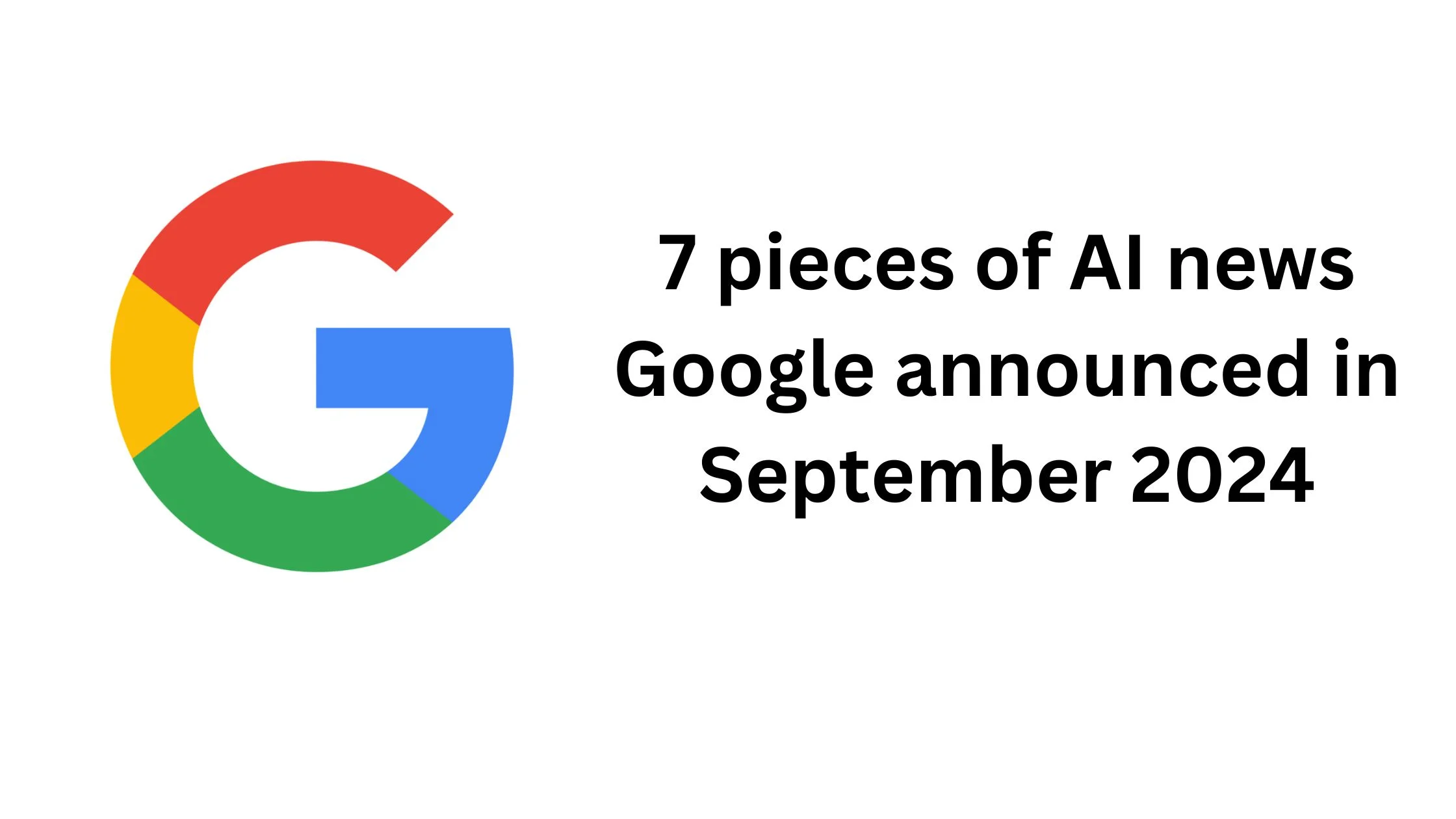Just Look At the Top 7 AI News From Google in September 2024, Lets Start
For over two decades, Google has been at the forefront of artificial intelligence (AI) and machine learning, developing tools and infrastructure to make life easier for people around the world. Google’s efforts span across various fields, including healthcare, education, crisis response, and more. To share its progress, Google is launching a regular update on its AI initiatives and advancements. This blog highlights some of Google’s key AI announcements from September.
AI News for Global Impact
In September, Sundar Pichai, Google’s CEO, addressed the United Nations at its first “Summit for the Future,” unveiling a $120 million Global AI News Opportunity Fund. This initiative focuses on expanding AI education and training globally. Pichai emphasized the importance of collaboration between public and private sectors to ensure AI benefits everyone and closes the digital divide. He stressed the transformational nature of AI and Google’s commitment to ensuring responsible deployment for the greater good.
Enhancing Learning with AI Tools
Google introduced new features to NotebookLM, its AI-powered research assistant, with Audio Overviews. This feature allows users to upload materials and listen to two AI hosts discuss the information, providing a deeper understanding of complex topics. Additionally, users can upload YouTube URLs and audio files, making research more dynamic and shareable. By simplifying the process of learning and sharing, Google aims to make education more accessible and effective.
AI in the Workplace: Gemini at Work
Google Cloud and Google Workspace hosted Gemini at Work, a global event exploring how AI is transforming businesses. AI agents, powered by Gemini models, are already helping companies across industries increase productivity, improve customer experiences, and create new business opportunities. From guiding shoppers to specific products to assisting healthcare professionals with shift handovers, AI is reshaping workplaces to meet diverse needs and goals.
Empowering Educators with AI
Google.org announced more than $25 million in funding for five U.S.-based education organizations, aiming to provide over 500,000 students and educators with foundational AI skills. This initiative includes developing AI curriculums, training teachers, and creating inclusive learning experiences. One notable offering is the Generative AI for Educators course, which helps educators leverage AI tools to save time and enhance student learning.
Using AI to Build Safer, Healthier Communities
Google launched its new Heat Resilience Tool, combining AI-powered satellite imagery and object detection to help cities tackle rising temperatures. The tool helps urban planners determine the most effective cooling interventions, such as planting trees or improving building insulation, down to the neighborhood level. This AI-driven approach is being piloted in 14 U.S. cities to protect communities from the health risks associated with extreme heat.
In collaboration with firefighting experts, Google Research is also developing FireSat, a satellite constellation designed to detect wildfires as small as a classroom. FireSat’s high-resolution imagery, updated every 20 minutes, will help authorities respond to wildfires more effectively, potentially preventing smaller fires from spreading into devastating blazes.
AI in Healthcare: Early Detection Technologies
Google made its bioacoustic foundation model, Health Acoustic Representations (HeAR), available to researchers. HeAR can detect human sounds, such as coughs, to flag early signs of diseases like tuberculosis. This innovation could improve early disease detection in areas lacking sufficient healthcare services, helping millions of undiagnosed patients access treatment faster. An Indian respiratory healthcare company is already exploring HeAR’s potential in improving TB detection.
Envisioning the Future of AI
In an essay for Stanford University’s “The Digitalist Papers,” James Manyika, Google’s Senior Vice President of Research, Technology & Society, asked readers to imagine a future where AI benefits humanity on a large scale. He emphasized the importance of responsible innovation, public conversations, and setting clear goals as we continue to develop AI technology that serves people in the immediate and distant future.
Conclusion: Google’s recent AI announcements showcase the profound impact AI can have across sectors such as education, healthcare, and urban planning. By fostering partnerships, developing new tools, and funding global initiatives, Google is ensuring that AI benefits everyone, from students and educators to firefighters and urban planners. As AI continues to evolve, Google’s commitment to responsible innovation will guide its path forward, making a positive difference in communities worldwide.

